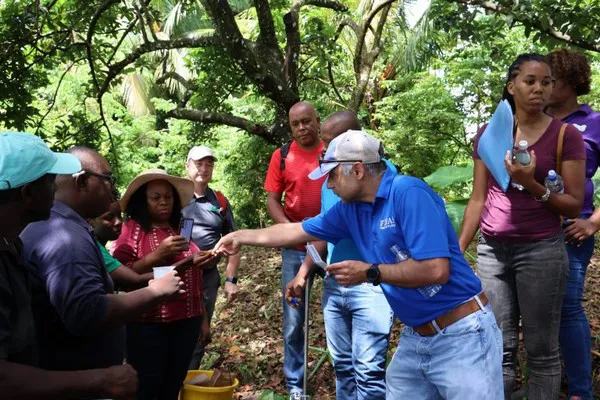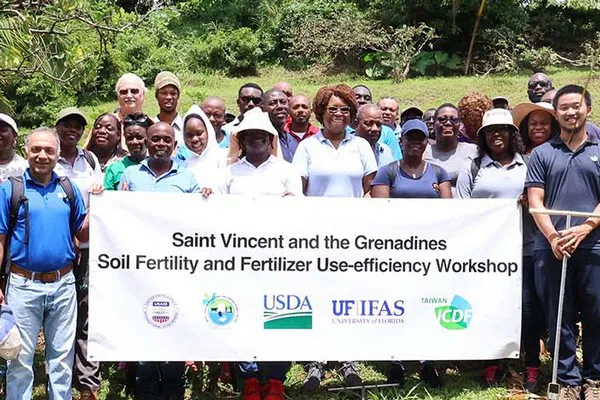At their core, land-grant institutions like the University of Florida focus on how science, research, and global partnerships can address food-security challenges, develop innovative solutions, and efficiently reach those in need.
To promote food security, a team of University of Florida Institute of Food and Agricultural Sciences (UF/IFAS) faculty recently conducted a three-day training program in Saint Vincent and the Grenadines to address the challenges of excess and lack of nutrients used for agricultural production.

The training was co-sponsored by the U.S. Department of Agriculture Foreign Agricultural Service; U.S. Agency for International Development/Eastern and Southern Caribbean Region; the Government of Saint Vincent and the Grenadines Ministry of Agriculture, Forestry, Fisheries, Rural Transformation, Industry and Labour and the Taiwan International Cooperation and Development Fund.
“Nutrients, such as nitrogen, phosphorus, and potassium, have long been used in agricultural practices in the form of fertilizers to enhance crop yields,” said Jehangir ‘Jango” Bhadha, an associate professor of soil, water, and ecosystem sciences at the UF/IFAS Everglades Research and Education Center (UF/IFAS EREC). “However, excess use of fertilizers can lead to eutrophication, a process that can degrade downstream and surrounding ecosystems.”
The process threatens biodiversity. Meanwhile, the agriculture industry faces the challenge of depleted soils in the Caribbean, resulting in insufficient fertilizer and threatening their food supply.

Kelly Morgan, also a professor of soil, water, and ecosystem sciences at the UF main campus in Gainesville, led the training program with fellow UF/IFAS faculty Bhadha, Lincoln Zotarelli, a horticulture science professor, and Sarah Strauss, an associate professor of soil microbiology, to enhance the technical knowledge, skills, and practices of local growers, agricultural stakeholders, and practitioners.
Source: ifas.ufl.edu
